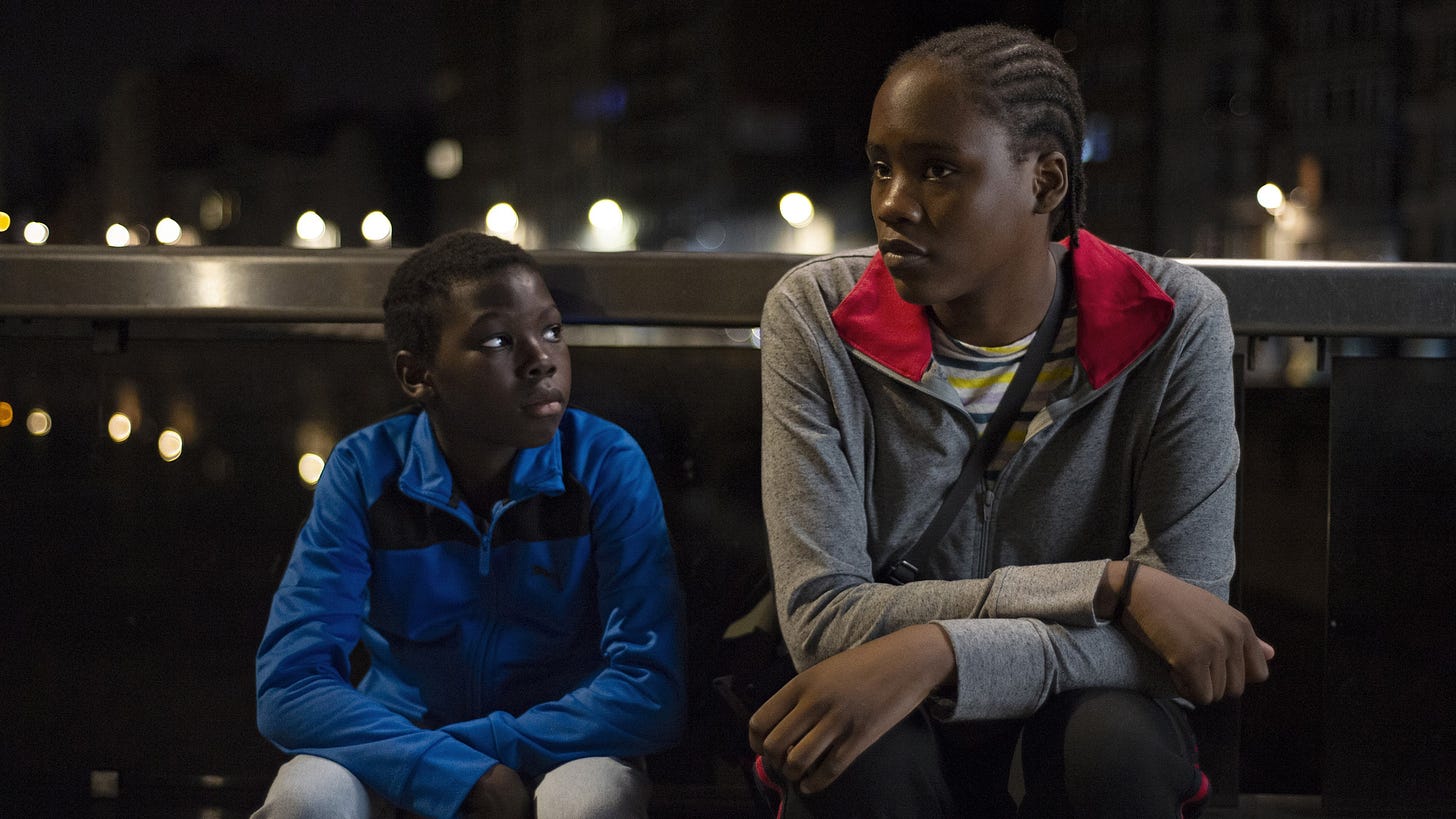Viennale Diaries: Day 1
What started with a whimper, ended with a bang.
Tori and Lokita
I was never supposed to see Tori and Lokita at the Viennale, Vienna’s official International Film Festival. The latest Dardenne bros offering wasn’t part of the original schedule, but the window opened up when I found out the screening of Werner Herzog’s The Fire Within was in dubbed German.
When I walked back out onto the rainy street, one thought kept circling my mind. “Goddamnit, why don’t I know German?”
The story of Lokita (Joely Mbundu) and Tori (Pablo Schils), two African adolescents who smuggled their way into France through Italy, feels overly familiar. The Dardennes signature cinema vérité style gives you the feeling of being right there next to Tori and Lokita, as they slip and slide through the invisible hand of French justice in an attempt to get Lokita her papers so she can have legal residency and build a real life. They get pushed around and manipulated, of course, and fall into a bad crowd when they make a deal with a drug dealing chef (Alban Ukaj).
Schils is a much more captivating screen presence, helped by the fact that Tori - the younger, more energetic and quick-on-his-feet of the two - has the more dynamic journey. Following him around as he tries to get to Lokita after they get separated is the most compelling twenty or so minutes of the entire film.
Tori and Lokita is ultimately a minor chord in the Dardenne ouvre; a film that blatantly and bluntly pulls at your heartstrings so often (were Lokita’s panic attacks really necessary?) that it feels quite removed from the understated nature the Belgian brothers built their reputation on.
Look to the past, as their best films still lie behind them, in the late 90s and early 00s.
Pacifiction
“Abandon everything that keeps you here.”
I’ve been fascinated by Albert Serra’s cinema ever since I saw The Death of Louis XIV - he conjures up images and sounds in ways that few others can, and the result is an experience most akin to being under a sorcerer’s spell; hypnotized by moving images, parchments of a narrative and strange sounds. Once the end credits roll and you snap out of it, it may take some time before you realize you were just under the spell of pure cinema.
“Pure cinema” has become an overused cliche in film writing circles, a label many are quick to use to describe just about any decent movie that doesn’t follow a conventional narrative. When it comes to Albert Serra though, no other description feels more apt. Pacifiction could be his magnum opus in this respect; a near 3-hour exploration of the strangest kind, set in the exotic French Polynesian island of Tahiti we follow around High Commissioner De Roller (Benoit Magimel) as he tries to get to the bottom of an absurd rumour about nuclear testing.
The atmosphere is that of constant teetering on the edge of a different dimension. Like not taking enough magic mushrooms, the fuzzy haze is there but you haven’t completely lost all sensual control. The story is sprawled out over gorgeously lit interior and exterior shots of Tahiti, crawling with ambiguous characters who have mysterious machinations, and it’s peppered throughout with a caustic, uneasy sense of humor. It feels very much like a novel with its epic scale and slippery narrative; the most Thomas Pynchon-esque story that has nothing to do with Thomas Pynchon. Something big, something that has global implications, could be brewing on this otherwise forgotten and foreign island, and that mood alone is impossibly compelling.
Nevermind that Magimel channels all his inner Johnny Depp’s and Sean Penn’s to give one of the most charismatic performances of the past five years, and that Serra’s concoction of electronic ambient music and imagery from the editing room makes the final 30 minutes of the film the most cinematically transcendent since Apichatpong Weersathakul’s Memoria. The setting, De Roller’s increasing paranoia, the ridiculous submarine Admiral (Marc Susini), the dialogue that has unforgettable lines like “Abandon everything that keeps you here”, the increasingly hypnotic and bizarre sounds and music - all of it make the transcendence in the conclusion of Pacifiction that much more impactful than anything I’ve seen in a very long time.
It pretty much ticks every single one of my boxes and hits the hamster inside my wheelhouse right on the head, and I feel quite lucky to have experienced it in a cinema - where it truly belongs.
What made the experience of seeing this film ending close to midnight in Vienna that much more unforgettable, was having Mr. Serra in attendance. He did a mammoth Q&A right after that lasted close to one hour and a half. To have witnessed the stream of consciousness of such a creative mind was a most unexpected and welcome surprise. For a man who twice said “I have nothing to say” when describing his process, Albert Serra loves to talk, and hopefully when I get some time I will transcribe some of his juiciest quotes in a separate Substack article.



